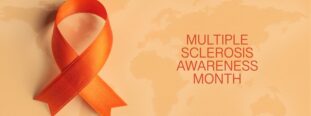What’s hot on social media
Social media have become an important means for people in the MS community to communicate with one another, to access new information and share experiences. All of this activity has attracted the attention of researchers, and two new studies were presented at this year’s joint U.S.-European MS congress (ACTRIMS/ECTRIMS).
One study in the U.K. used an analytics tool to search for messages on Twitter about MS (Pakpoor and colleagues. ECTRIMS 2014; abstract P607). Between March 2006 (when Twitter launched) and April 2014, only three search terms identified 1,680,783 tweets about MS. That number is increasing fast – with 43% more MS tweets during 2013 compared to 2012.
What’s hot: Positive messages about living with MS (tweets were much more positive in the MS community compared to Twitter overall). And news stories, especially those with a celebrity name attached to them.
What’s not: CCSVI (chronic cerebrospinal venous insufficiency). The heyday of CCSVI was in the spring of 2011 (over 60,000 tweets), when funding for a new trial was announced. But the number of tweets about CCSVI has declined ever since.
A new use of social media is to recruit people into clinical studies. One such effort is the Genes and Environment in Multiple Sclerosis (GEMS) Research Study at Harvard University, which hopes to identify genetic, environmental and immune factors that increase the risk of developing MS. Traditional recruitment methods (mailings, online ads, etc.) were a bust – only 100 people signed up in the first year – so the group is hoping that Facebook and Twitter will help them find research subjects (www.facebook.com/pages/Genes-and-Environment-in-Multiple-Sclerosis-GEMS-Research-Study/200900853288242?sk=info).
GEMS is looking for adults (aged 18-50 years) who are close relatives (parent, child or sibling) of someone with MS. Thus far, social networking has identified half of the planned number of 5,000 people so there’s still a little way to go (von Korff and colleagues. ECTRIMS 2014; abstract P606). For more information about the study, go to http://dejager_lab.bwh.harvard.edu/?project=featured-projects.
Share this article
Facebook Twitter pin it! Email
Related Posts
Back





